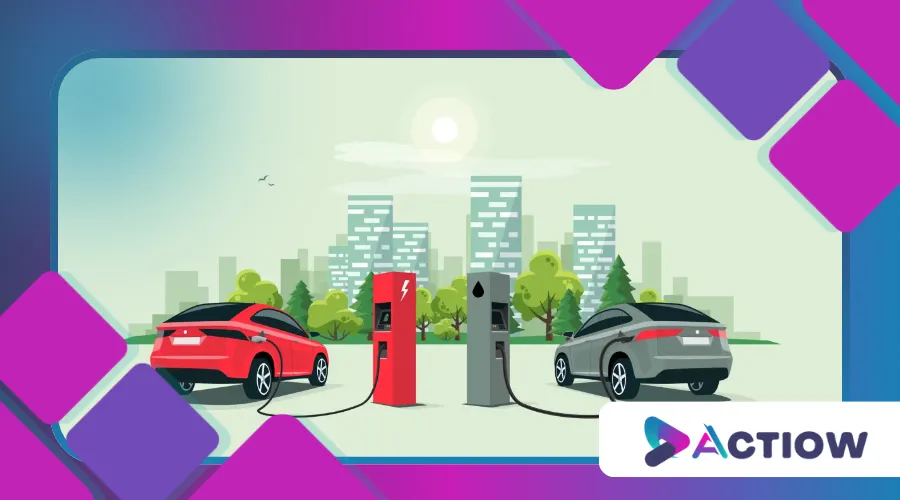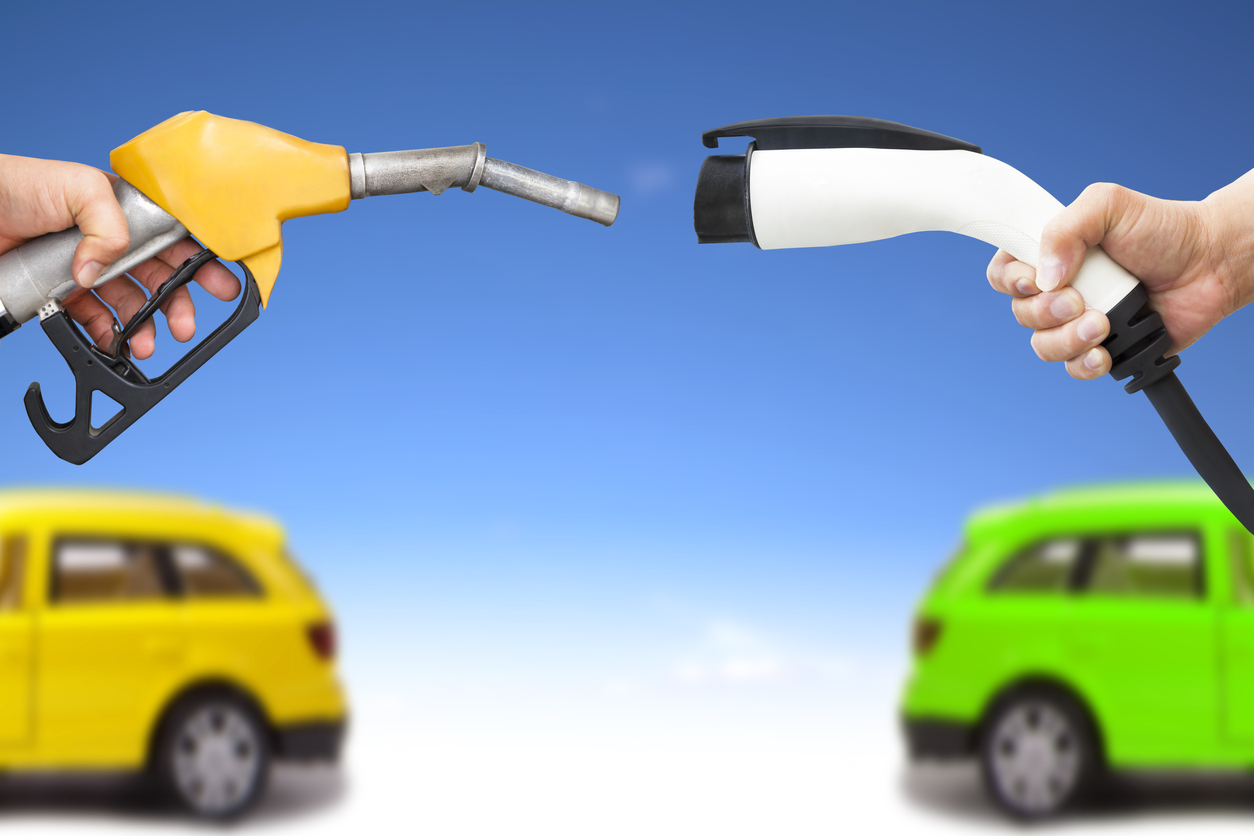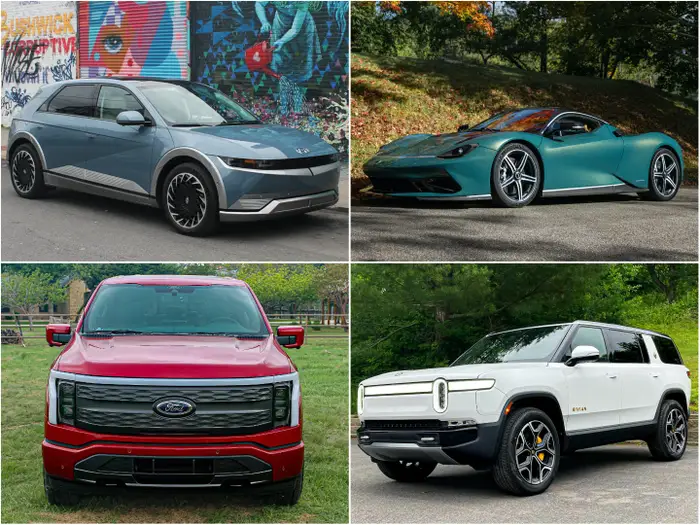Electric Cars vs. Gasoline Cars: Pros and Cons

Anúncios
The debate between Electric Cars vs. Gasoline Cars is more than just a comparison of powertrains—it’s a discussion about the future of transportation, environmental impact, and consumer preferences.
As the automotive industry evolves, drivers are increasingly faced with the decision of whether to embrace the electric revolution or stick with the tried-and-true internal combustion engine.
Both options have their merits and drawbacks, and understanding these can help you make an informed choice.
Anúncios
This choice is not just a personal decision; it also reflects broader societal trends toward sustainability and innovation.
As more consumers prioritize eco-friendly options, manufacturers are compelled to adapt, leading to a more diverse range of vehicles on the market.
The Rise of Electric Vehicles: A Game-Changer in the Automotive World
Electric vehicles (EVs) have surged in popularity over the past decade, thanks to advancements in battery technology, government incentives, and growing environmental awareness.
According to the International Energy Agency (IEA), global electric car sales surpassed 10 million in 2022, marking a 55% increase from the previous year.
This rapid growth underscores the shifting tides in consumer behavior and industry priorities.
Moreover, as battery technology continues to improve, the cost of EVs is expected to decline, making them more accessible to a wider audience.
The expansion of electric vehicle models across various segments, from compact cars to trucks, further indicates the industry’s commitment to electrification.
One of the most compelling advantages of electric cars is their environmental footprint.
Unlike gasoline-powered vehicles, EVs produce zero tailpipe emissions, making them a cleaner alternative for urban areas struggling with air pollution.
Additionally, as renewable energy sources like solar and wind power become more prevalent, the overall carbon footprint of electric cars continues to shrink.
However, the transition to electric mobility isn’t without challenges.
Range anxiety—the fear of running out of battery before reaching a charging station—remains a significant concern for many potential buyers.
While modern EVs like the Tesla Model 3 and Chevrolet Bolt offer ranges exceeding 250 miles, the charging infrastructure in many regions still lags behind.
Gasoline Cars: The Reliable Workhorse of the Road
Gasoline-powered vehicles have dominated the roads for over a century, and for good reason.
They offer unparalleled convenience, with refueling stations available on nearly every corner.
The average gasoline car can travel over 300 miles on a single tank, and refueling takes just a few minutes—a stark contrast to the longer charging times of EVs.
In addition to convenience, gasoline cars often have a wider variety of models and options available, catering to different preferences and needs.
This extensive selection allows consumers to find vehicles that fit their lifestyle, whether they prioritize performance, comfort, or utility.
Performance is another area where gasoline cars often shine.
The visceral experience of driving a high-performance internal combustion engine, with its roaring exhaust notes and rapid acceleration, is something many enthusiasts cherish.
Brands like Porsche, Ferrari, and BMW have built their reputations on delivering this kind of driving experience.
Yet, gasoline cars come with their own set of drawbacks.
The most glaring is their environmental impact.
Burning fossil fuels releases carbon dioxide and other pollutants, contributing to climate change and poor air quality.
Additionally, gasoline prices are subject to fluctuations, which can make budgeting for fuel costs unpredictable.
+ Top 10 Most Anticipated Cars of 2025: New Releases in the Market

Cost Comparison: Upfront Investment vs. Long-Term Savings
When comparing Electric Cars vs. Gasoline Cars, cost is a critical factor.
Electric vehicles typically have a higher upfront price tag, largely due to the cost of batteries.
However, they often make up for this with lower operating costs.
Electricity is generally cheaper than gasoline, and EVs require less maintenance since they have fewer moving parts.
To illustrate this, let’s look at a cost breakdown over five years:
| Expense | Electric Car | Gasoline Car |
|---|---|---|
| Purchase Price | $45,000 | $35,000 |
| Fuel/Electricity Costs | $2,500 | $7,500 |
| Maintenance | $1,500 | $3,000 |
| Total | $49,000 | $45,500 |
While the gasoline car is cheaper upfront, the electric car becomes more cost-effective over time.
This long-term savings can be particularly appealing for families or individuals who drive frequently.
Moreover, many regions offer tax incentives and rebates for electric vehicle purchases, further reducing the initial cost.
Environmental Impact: A Clear Divide
The environmental debate between Electric Cars vs. Gasoline Cars is complex.
While EVs produce no tailpipe emissions, the production of their batteries involves mining for materials like lithium and cobalt, which can have significant environmental and ethical implications.
This aspect of battery production has raised concerns about the sustainability of sourcing these materials and their impact on local communities.
As a result, many manufacturers are investing in more sustainable mining practices and developing battery recycling programs to mitigate these issues.
On the other hand, gasoline cars emit greenhouse gases throughout their lifecycle, from extraction and refining to combustion.
According to a study by the Union of Concerned Scientists, EVs produce less than half the emissions of comparable gasoline cars over their lifetime, even when accounting for battery production.
Here’s a simplified comparison of their environmental impact:
| Factor | Electric Car | Gasoline Car |
|---|---|---|
| Tailpipe Emissions | None | High |
| Battery Production | Moderate Impact | N/A |
| Fuel Production | Low Impact | High Impact |
| Overall Impact | Lower | Higher |

++ Top 10 Fuel-Efficient Cars in 2025
Performance and Driving Experience
Performance is where the Electric Cars vs. Gasoline Cars debate gets interesting.
Electric vehicles are known for their instant torque, delivering rapid acceleration from a standstill.
This makes them incredibly fun to drive, especially in urban settings.
Many EV models also come equipped with advanced performance features, such as regenerative braking, which enhances efficiency while driving.
As technology advances, electric cars are increasingly competing with traditional performance vehicles, attracting a new generation of enthusiasts.
Gasoline cars, however, offer a more traditional driving experience.
The sound of a revving engine, the feel of shifting gears, and the ability to drive long distances without stopping are qualities that many drivers still value.
For those who enjoy the tactile feedback of driving, gasoline vehicles often provide a more engaging experience.
Infrastructure and Convenience
One of the biggest hurdles for electric cars is the lack of widespread charging infrastructure.
While major cities and highways are increasingly equipped with charging stations, rural areas often lag behind.
This disparity can discourage potential buyers who are concerned about the availability of charging options during long trips.
However, this gap is closing.
Companies like Tesla, Electrify America, and ChargePoint are rapidly expanding their networks, making it easier than ever to own an EV.
Additionally, many EV owners find it convenient to charge their vehicles at home overnight, eliminating the need for frequent stops at gas stations.
The Future of Mobility: What Lies Ahead?
The Electric Cars vs. Gasoline Cars debate is far from settled, but the trend is clear: electric vehicles are gaining ground.
Governments around the world are setting ambitious targets to phase out gasoline cars, with countries like Norway aiming for 100% electric car sales by 2025.
This shift is not only driven by environmental concerns but also by technological advancements that make EVs more appealing.
At the same time, advancements in synthetic fuels and hybrid technology could keep gasoline cars relevant for years to come.
The key lies in balancing innovation with practicality, ensuring that the transition to electric mobility is both sustainable and inclusive.
Conclusion: Making the Right Choice for You
Ultimately, the decision between Electric Cars vs. Gasoline Cars depends on your priorities.
If you value environmental sustainability, lower operating costs, and cutting-edge technology, an electric car might be the way to go.
But if you prioritize convenience, performance, and a proven track record, a gasoline car could be the better choice.
As the automotive landscape continues to evolve, one thing is certain: the future of transportation will be shaped by the choices we make today.
Whether you’re Team Electric or Team Gasoline, the road ahead promises to be an exciting journey.
